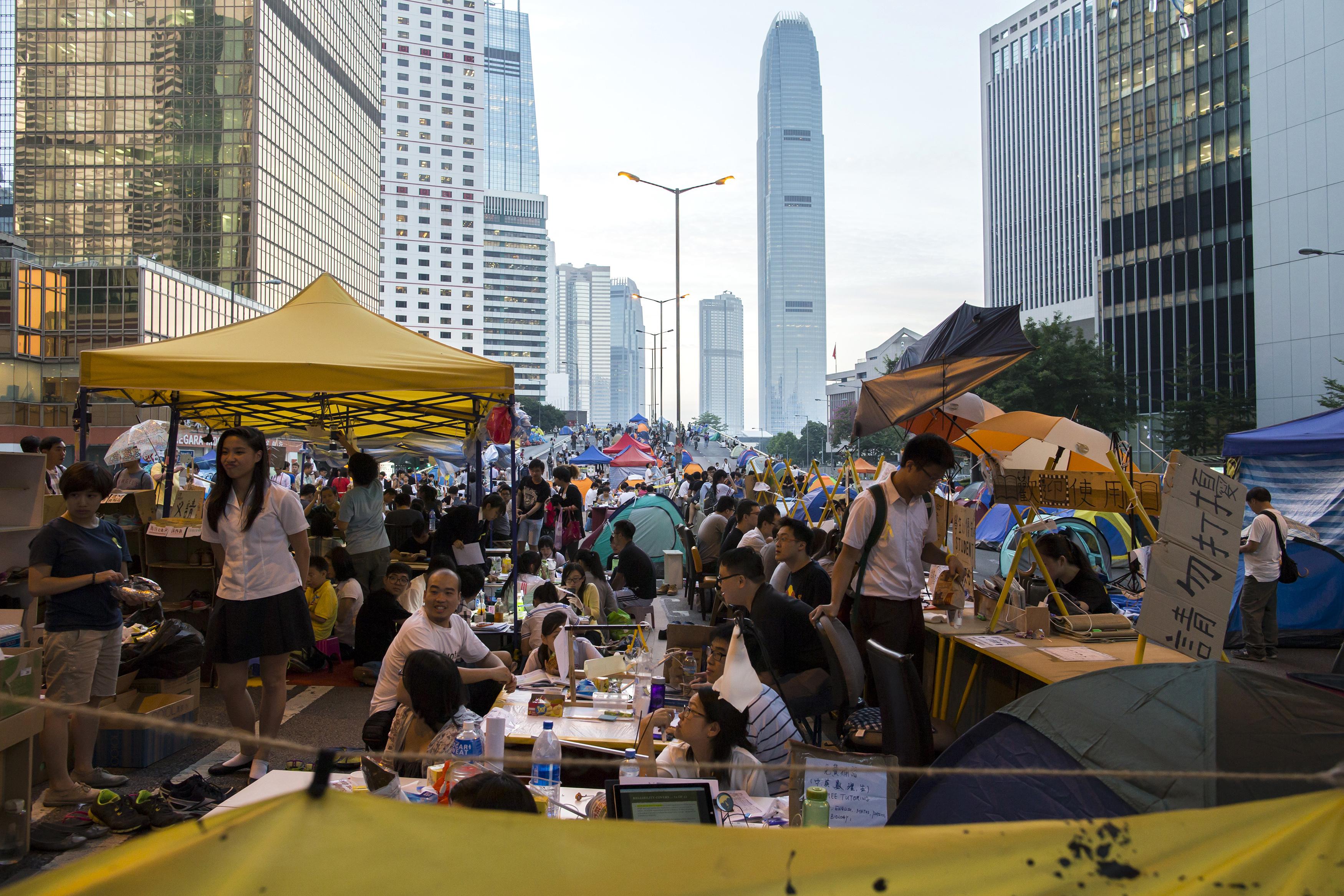With pro-democracy protests in Hong Kong entering their fourth week, China-appointed city leader Leung Chun-Ying said today that authorities will not consider allowing open nominations in the 2017 election that will choose his successor. China announced earlier this year it will only allow candidates to be chosen by a (presumably Beijing-influenced) nomination committee, and activists’ demand for a more democratic nomination process is one the central issues motivating the recent protests. Leung says an open process would unfairly favor the poor. From the New York Times:
Mr. Leung acknowledged that the protests that have shaken this autonomous Chinese territory for the past three weeks reflected not only broad demands for democracy but also economic grievances, notably the high cost of housing and limited social mobility for the young.
But Mr. Leung, whom the Chinese Communist Party’s leadership has repeatedly endorsed, argued that remedying these grievances should be left to policies like expanding the supply of housing…
“You have to take care of all the sectors in Hong Kong as much as you can,” he said, “and if it’s entirely a numbers game and numeric representation, then obviously you would be talking to half of the people in Hong Kong who earn less than $1,800 a month.”
Leung also said that “challenging the Hong Kong government at these difficult times will do no one any service,” but he didn’t make any definitive statement about how long demonstrators’ occupation of central public areas would be allowed to continue. Protests have become more tense and violent in recent days as police have begun taking down some protester-assembled barricades, and the premeditated beating of one activist was caught on video last week.
This Vox piece puts the issues of candidate nominations and police violence in historical context, writing that both issues are important to Hong Kong residents not only in and of themselves, but also as tests of Chinese authorities’ willingness to crack down in a traditionally independent city where the Tiananmen Square massacres are still well-remembered.
Correction, Oct. 20, 2014: This post originally misspelled Tiananmen Square.
